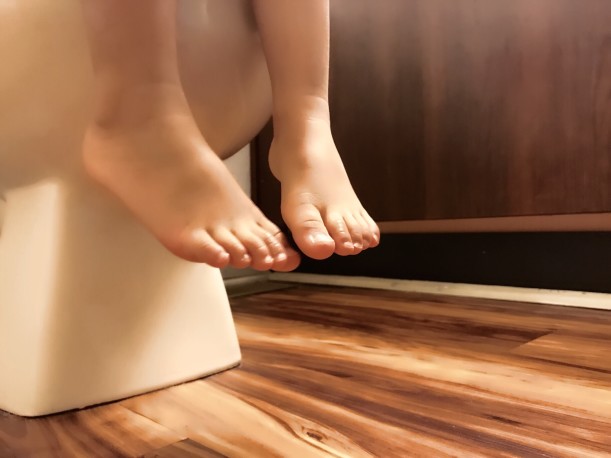Potty-training. It can be one of the hardest stages you and your preschool child face together, and it can often feel isolating, but it doesn’t have to be! As your child’s caregiver when you’re at work, we can help support you through your toddler’s potty-training journey. With years of experience and the knowledge that often, potty-training is less stressful and easier when your child’s teacher takes the lead, we feel confident that we can help you and your preschool child succeed. No matter what, it’s important to note three tips for successfully potty-training a toddler.
- Accidents will happen, but they are just that—accidents
- Timing is essential, and so is knowing when your toddler is ready to train
- Make sure immediate family and caretakers are on board
-
Accidents Will Happen, But They Are Just That—Accidents
It’s easy to get overwhelmed or frustrated with each potty accident your toddler has, but keep in mind that they are just that, accidents, and not intentional behaviors, is so important. As your child’s caregivers, we see this as a crucial step in the learning process. While it’s not ideal, it helps your preschool child understand what happens if they don’t make it to the potty in time. It’s just a matter of cleaning up the messing, changing your child’s clothes, and moving forward with your day and the potty-training process.
-
Timing Is Essential, And So Is Knowing When Your Toddler Is Ready to Train
While you’re at home with your preschool child, it can be hard to remember that they need structure, especially when they are new to something as time-dependent as potty-training. So, how can you set your child up for success when they are not at daycare where schedules are king? Set your alarm for every half hour and try to potty each time. The biggest challenge is always going to be getting your child to leave behind whatever activity they are interacting with willingly. By gently reminding them a few times before the alarm goes off, you can avoid a little stress. Another fun idea? A potty watch! This is a watch that you can get for your toddler to wear and set it to go off at whatever intervals work for them. This way, they are in control of the alarm, and it feels like a fun exercise rather than a chore mom or dad is forcing them to do.
But, speaking of timing, how do you know if it’s time to potty-train your child in the first place? There are a few signals that indicate when a child is close to ready for potty-training, which will be an indication for you to prepare for whichever method you choose. Let’s take a look at a few of them now:
- Hiding while going pee or poop
- Having a dry diaper for longer intervals
- Waking up dry from a nap or nighttime
- Telling you they need to go or are actively going
- Pulling at their wet or dirty diaper
-
Make Sure Immediate Family and Caretakers Are on Board
The biggest thing that any potty-training parent needs are support systems. Whether from your spouse, relatives that often babysit, or your daycare or preschool teachers, making sure everyone is on board with your potty-training process is crucial to success. By letting them know about successes, things that don’t work for your child, and things they respond well to, you’ll set your toddler and us up for success during the school day. Keep us informed so we can help reinforce all the potty-training activities going on at home.
Remember, you’re not in this alone! Here at the Breakie Bunch Learning Center, we’re committed to walking alongside you, and potty-training is an important milestone in your child’s development!


